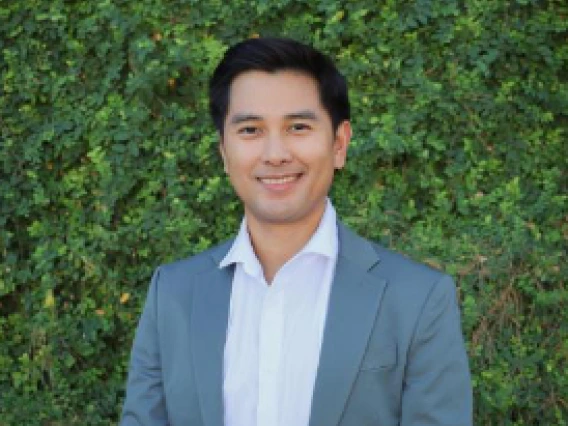
Alvin Alabaso, M.Ed. BCBA, LBA
Alvin Alabaso, M.Ed., BCBA, LBA is a dedicated and experienced behavior analyst with a strong background in special education, psychology, and applied behavior analysis. He holds a Master of Education in Special Education from Grand Canyon University and is a Board Certified Behavior Analyst (BCBA). Alvin’s career spans over 15 years, during which he has served as a behavior technician, special education teacher, and BCBA. His expertise includes developing individualized education plans, conducting functional behavior assessments, and implementing evidence-based interventions for individuals with disabilities.
Currently pursuing a Ph.D. in Special Education at the University of Arizona, Alvin is the recipient of a prestigious grant from the U.S. Department of Education Office of Special Education Programs. His research focuses on addressing systemic barriers to accessing transition services for individuals with extensive support needs, with a particular emphasis on equity in employment and high-quality postsecondary opportunities for students with autism. He leverages the principles of applied behavior analysis to prepare these students for meaningful success in their adult lives.
Alvin’s international experience includes working with the Autism Association of Singapore, where he supported diverse populations and developed inclusive strategies. As a member of the Association for Behavior Analysis International (ABAI), Alvin integrates cultural competence, innovative approaches, and a deep understanding of individual needs into his work. By collaborating with families, educators, and multidisciplinary teams, he strives to create inclusive environments that foster independence, meaningful community participation, and positive change in the fields of special education and behavior analysis.
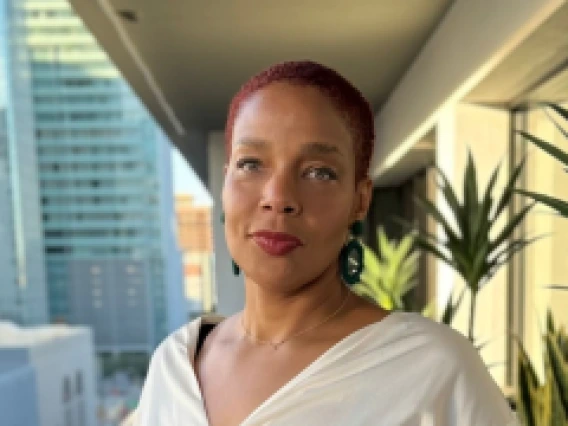
Toni Barton, Ph.D. Candidate
Toni Barton is a seasoned educator, scholar, and leader in inclusive education, currently serving as a Clinical Assistant Professor at Arizona State University. Currently pursuing her Ph.D. in Special Education at the University of Arizona, Barton’s research centers on the inclusion of BIPOC students with extensive support needs, investigating how leadership frameworks and school systems can address intersectionality, racism, and ableism. Toni is a distinguished recipient of a prestigious grant from the USDOE OSEP, awarded for her impactful work focused on enhancing educational outcomes and making meaningful differences in the lives of SWD. This recognition highlights her potential as an emerging scholar dedicated to advancing inclusive practices and support systems in special education. Barton holds a Master of Arts in Teaching Special Education from Trinity University and a Juris Doctor from the University of Illinois. She has extensive experience at all levels of the education system, including roles as a classroom teacher, principal, district leader, and state-level coach. Barton founded the Inclusive Schools Leadership Institute at Relay Graduate School of Education and has trained hundreds of leaders across the country in creating equitable, inclusive educational environments. A recognized speaker at conferences such as SXSWEdu and the National Charter Schools Conference, she has been honored by the Center for Learner Equity as a beacon in special education. Barton’s research and writing, including her book Seven Principles for Building a Truly Inclusive School: A Call to Action for K-12 Leaders, aim to dismantle exclusionary practices in schools by supporting educators in anti-ableist program design. Her current projects, such as her partnership with Blue Engine and collaboration with KIPP Northern California, focus on transforming general education practices to improve outcomes for students with disabilities. In her work, she emphasizes equity literacy and culturally responsive practices, fostering anti-exclusionary approaches that recognize learner variability and promote neurodiversity. Drawing from DisCrit, transformative leadership, and culturally responsive frameworks, Barton’s work prioritizes transforming educational systems so they benefit all students. She seeks to provide both theoretical and practical insights to help educational leaders and decision-makers drive systemic change.
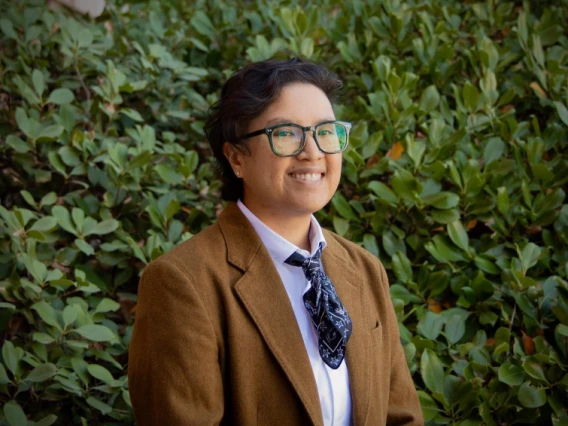
Andrea Espinoza
A proud Tucsonense, Andrea Espinoza is an educator and scholar dedicated to strengthening public education for students with disabilities, particularly those navigating various systemic barriers. With an M.Ed. in Secondary Education from the University of Arizona’s Humanizing and Culturally Affirming Teaching (HCAT) program, Andrea has worked alongside youth to cultivate their academic growth and self-advocacy as a special and general education teacher. Now a Ph.D. student in Special Education and a recipient of a prestigious grant from the U.S. Department of Education’s Office of Special Education Programs (OSEP), her research focuses on the intersections of community collaboration, student voice and local special education policy. Andrea is committed to advancing research that drives sustainable access to high-quality public education, ensuring that youth with disabilities experience safety, community and opportunity within their schooling. Through her work, she seeks to inform systemic improvements in K-12 special education policy and practice.
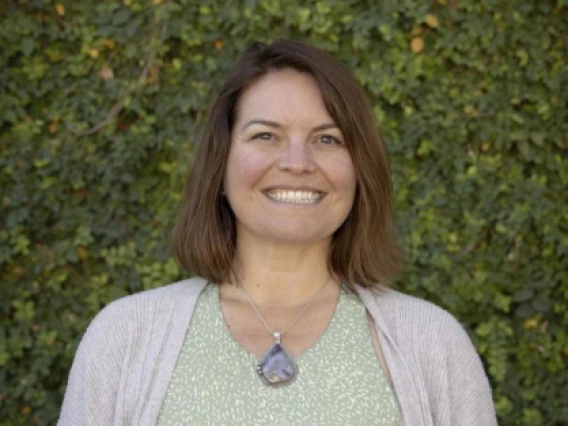
Becca Heinze, M.Ed., CTRS (she/her)
Becca Heinze (she/her) is a Ph.D. student in Special Education at the University of Arizona and a recipient of a prestigious grant from the U.S. Department of Education’s Office of Special Education Programs. Becca holds a Bachelor of Science in Parks, Recreation, and Tourism with an emphasis in Therapeutic Recreation from the University of Utah and a Master of Arts in Special Education, specializing in Severe & Multiple Disabilities from the University of Arizona. With a
background as an inclusive special education teacher, recreational therapist, and program manager, Becca focuses on mentoring special educators of students with extensive support needs. Becca’s work emphasizes student voice, inclusive experiential learning, adaptive sport & recreational pursuits, and expanding equitable access to community resources. Becca's research interests are in participatory action methods and interdisciplinary collaboration to create inclusive learning environments rooted in social-emotional connection. This work aims to strengthen educational teams and build systemic capacity for equitable education.
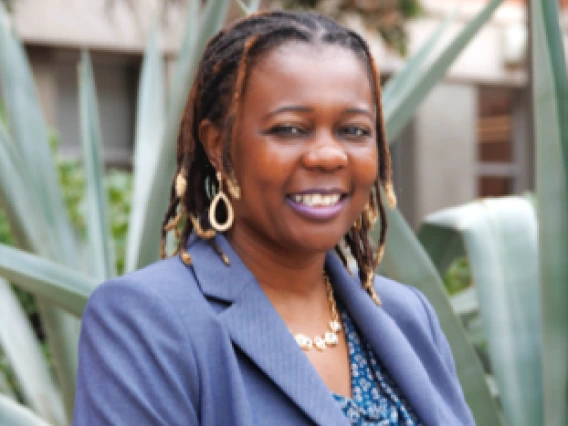
Vanessa Macamo
Vanessa Macamo is a Fulbright Doctoral Fellow from Mozambique in the special education program at the University of Arizona. Macamo obtained a Master of Laws in International and Comparative Disability Law and Policy from the National University of Ireland, Galway, in 2020, with financial support from an Open Society Foundation Scholarship. She received the prestigious Fulbright Scholarship in 2022 to support her doctoral research. She also acts as a teaching assistant for a course on Cultural and Linguistic Diversity in Exceptional Learners. Her experiences as a first-generation university student, former director of early childhood care at the Banco de Moçambique Children's Centre from 2016 to 2019 and educator and manager of the Children's Centre ‘O Cantinho da Sissi’ (2015 - 2020), has shaped her scholarly interests in inclusive education at the intersection of the diverse identities of students within various global contexts, especially in the global South.
Her research explores how education policies and practices, including teacher training, can support access to global inclusive education for students both with and without disabilities, while also considering the intersections with other identities. Drawing on Critical Policy Analysis of Education and Global Disability Studies in Education, she seeks to explore how the national education system in Mozambique can be critically evaluated and adapted to integrate inclusive education practices. Macamo’s research involves qualitative methods, auto-ethnography, and participatory approaches.
Her scholarly interest is issues of power, justice, and students’ intersectional identities within the education system, to deconstruct the barriers to well-being faced by students, specifically students with disabilities, by promoting a comprehensive education system that addresses the academic, physical, social, behavioral, and emotional needs of students to ensure equal opportunities for all. Vanessa is committed to learning from her community to provide valuable life skills for the collective well-being. Now living in the United States, she divides her time between the academy and her passion for education, actively building an academic network and sharing information with the Mozambiquan community about navigating higher education.
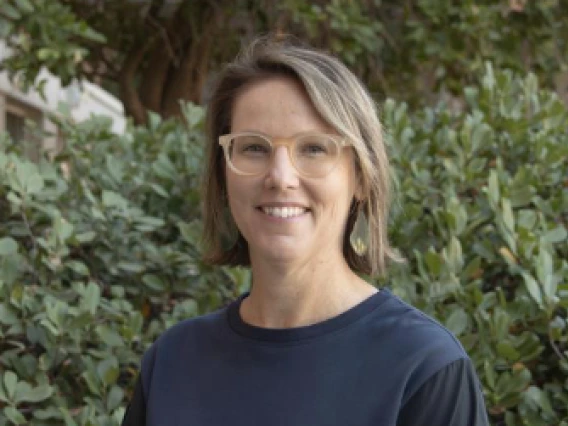
Megan Mogan
Megan is a doctoral student in the Department of Disability and Psychoeducational Studies within the College of Education at the University of Arizona. She is a distinguished recipient of a grant from the U.S. Department of Education’s Office of Special Education Programs, recognizing her work focused on enhancing educational outcomes for students with extensive support needs. Megan’s research centers on emergent literacy instructional strategies for students with visual impairments and complex communication needs, including those who are deafblind. Prior to pursuing her doctorate, Megan served as a Deafblind Specialist with the Arizona Deafblind Project and worked as a Speech-Language Pathologist at the Arizona State School for the Deaf and Blind’s Tucson campus for over two decades. She presents nationally on literacy and communication strategies for children and youth with sensory loss(es) at the earliest levels of communication. As a contributor to the “Playing with Words” Special Collection on the Perkins Paths to Literacy Site, Megan shared practical classroom experiences alongside her friend and mentor, Linda Hagood, incorporating a play-based approach to storytelling for students who are blind or visually impaired. Megan lives in Tucson, Arizona, and is a proud mother of three children, who inspire her understanding of equity, film and art, technology, and community-building.
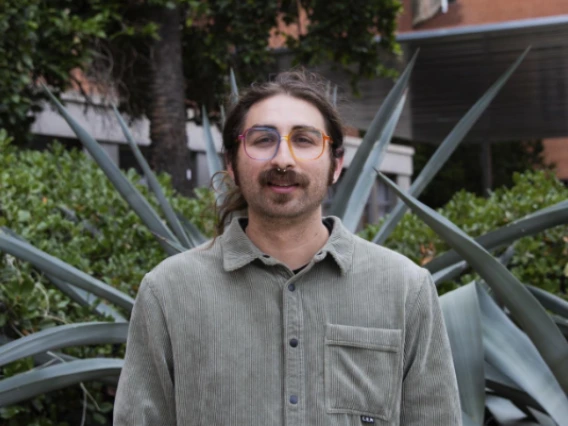
Adrian Rodriguez, M.S. (he/his/el)
Adrian is a Ph.D. student in Special Education at the University of Arizona, holding a prestigious grant from the U.S. Department of Education’s Office of Special Education. Before diving into research, he spent years in the classroom as a special education teacher, working to create spaces where students and their caregivers feel valued, supported, and safe. His focus on trauma informed care, culturally sustaining pedagogies, and positive behavior interventions have
shaped the foundation of his work today.
While working as a teacher, he earned his Graduate degree in Special Education from Portland State University and began to get his hands dirty—literally— while helping facilitate a school garden. Seeing how students thrived in the garden, building social-emotional skills and finding their place, planted the seed for something bigger. That’s where the idea of using alternative learning spaces like gardens to break down barriers for students with disabilities and
English Language Learners really took root.
Now, his research focuses on showing how enrichment learning spaces can do even more: supporting students’ social, emotional, academic, and professional growth. By combining single-subject research designs with qualitative methods, he aims to uncover not just the measurable impacts of these interventions but also the personal stories behind the data. His goal is to elevate the voices of the unheard, that enrichment learning spaces aren’t just nice extras—they’re powerful tools for learning and belonging. At the core of his work is a commitment to dismantling systemic barriers that limit access and opportunity. It’s not just about planting seeds in a garden—it’s about planting the seeds of equity, belonging, and growth in education.
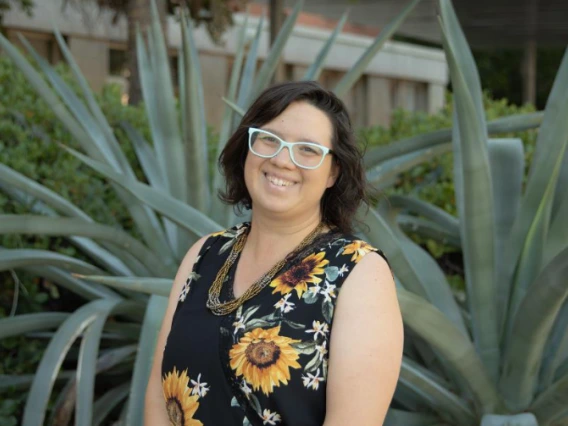
Andie Sweetman
Andie Sweetman is currently a PhD student at the University of Arizona. She is a distinguished recipient of a prestigious grant from the U.S Department of Education Office of Special Education, awarded for her impactful work on enhancing educational outcomes and making meaningful differences in the lives of students with disabilities. This recognition highlights her potential as a future scholar and researcher in the field of special education. Her research interests include systems change for inclusive education for students who are most at risk for segregation. She is interested in applying critical theory to examine education inequality in the placement of students with extensive support needs who are multiply marginalized. Before entering the PhD program, she was a special education teacher in Tucson working on increasing inclusive opportunities for students with disabilities.
Andie Sweetman completed her undergraduate degree in Religious Studies and Social Justice at Agnes Scott College and her master’s degree in Mild to Moderate Disabilities at the University of Arizona.
She is currently a member of TASH and AERA.
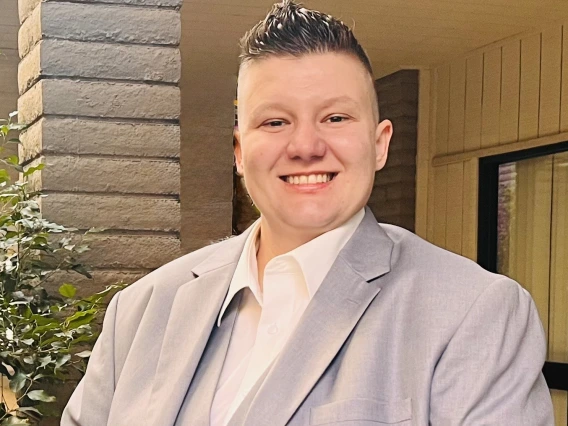
Willow Schroeder
Willow Schroeder is currently a special education administrator within the greater Tucson community. She is currently a doctoral student in the Disability and Psychoeducational Studies program at the University of Arizona. Willow was awarded the 2023 Early Career Special Education Administrator Award from AZCASE/CEC for her leadership and collaboration within the Sunnyside Unified School District. Recently she was awarded the Roberta and Jay Howenstine Scholarship. Willows’ focus, within the field of education, has been on increasing access to students with disabilities into more inclusive spaces.
After obtaining her Bachelors degree, she started working in a local high school providing supports for students with disabilities. Seeing the impact the co-teaching had on academic success for students, she advocated to increase inclusive opportunities at her school. Through her years as a teacher, she identified varied needs for students who presented with more emotional and behavioral disorders and lack of their inclusive opportunities. She obtained her Masters in K-12 Leadership after recognizing the need to support students through leadership roles. While continuing her journey through education, her interests and advocacy was fueled by asking questions about equitable practices and opportunities, while examining disciplinary practices.
An area of research interest is looking at disproportionate discipline and the practices that surround the systematic practice that influences students’ academic opportunities.
Professional affiliations: Council for Exceptional Children

